Inside: Over the years many people have asked, “Does Mozart make you smarter?” The answer is, “yes…and no.” The key is understanding what “kind” of smart we develop from listening to the music of Mozart. Here are some ideas to help you understand just how powerful music is in increasing specific kinds of intelligence.
Does Mozart Make You Smarter?
In the early 1990s, a groundbreaking study found that listening to the music of Mozart would make you smarter. When it hit the newsstands—it was like a firecracker exploding! The electricity caused by this sensation caused people of all ages to tune into Mozart hoping to gain a few IQ points.
That was 1994—over 20 years ago—and people are still asking, “Can Mozart’s music really make me smarter? The short answer is: “Yes, it can.”
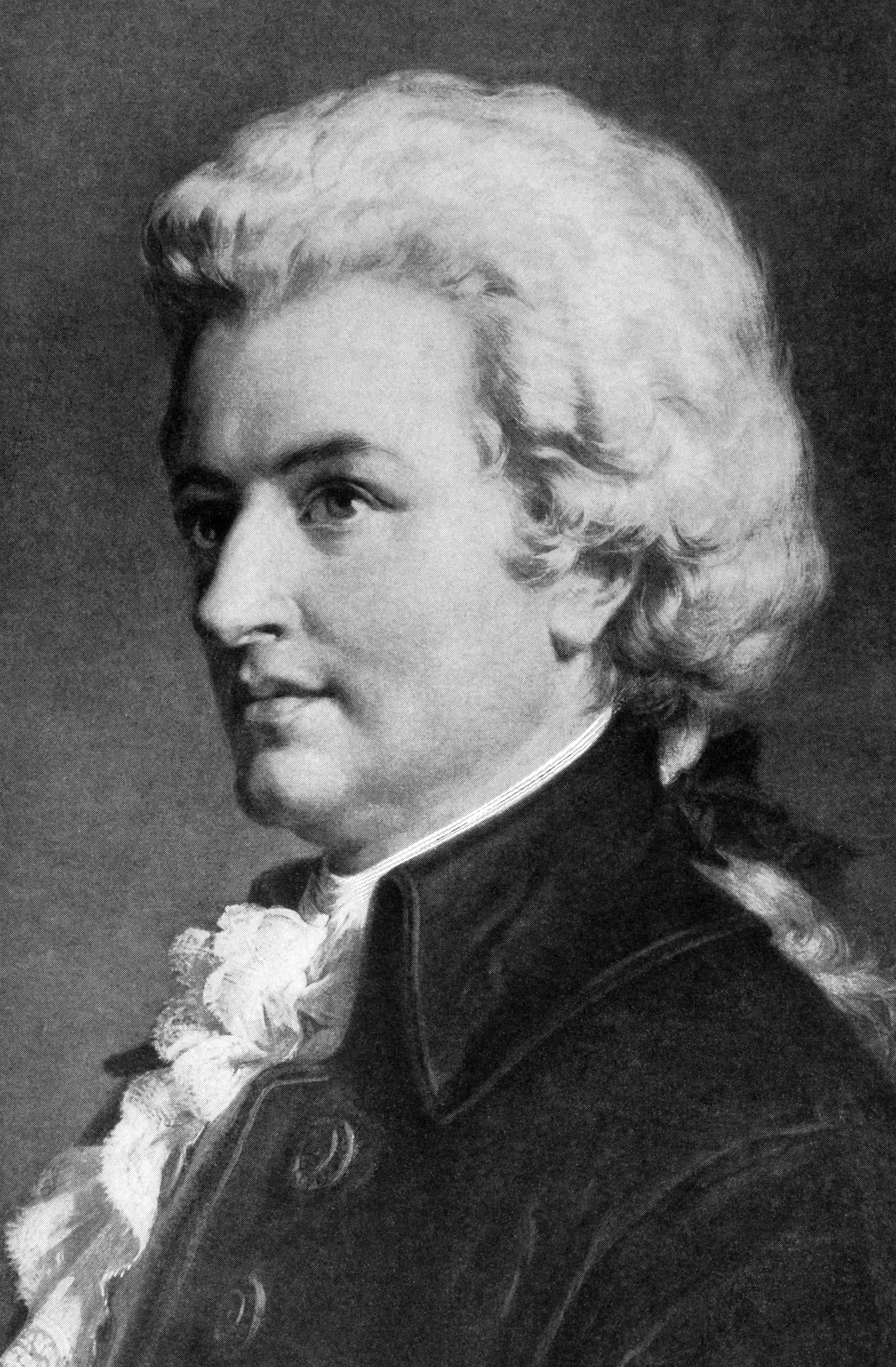
Wolfgang Amadeus Mozart (1756-1791). One of the greatest classical composers to ever live. His music has been used in countless studies demonstrating that the music of Mozart really can and does make you smarter!
But more important questions to ask are:
- “What is my definition of smarter?
- “How will the music of Mozart make me smarter?”
According to Howard Gardner, a psychologist at Harvard University, there are many ways to be smart. To date, Gardner has classified 9 different ways of being intelligent and he includes music as one of the most important because it influences all the other 8 intelligences. If you want to read more about this, check out my blog about “The 9 Ways to Be Amazingly Smart“.
Bottom line: if your child listens to the music of Mozart and learns to play a musical instrument he/she will definitely have an academic “edge” over kids who do not.
Here’s why…
First, learning a musical instrument exercises the entire brain simultaneously. And, as I’ve talked about in other blogs, music builds and strengthens the auditory, visual and motor areas of the brain—all important areas for learning.
But there’s more…
Mozart’s Music: A Musical Firecracker!
The scientific studies that demonstrated the power of Mozart’s music and music lessons were first conducted by Drs. Gordon Shaw and Francis Rauscher at the University of California at Irvine (UCI) from 1994-2003. College students, preschoolers, and children from kindergarten through the second grade took part in the ongoing studies.
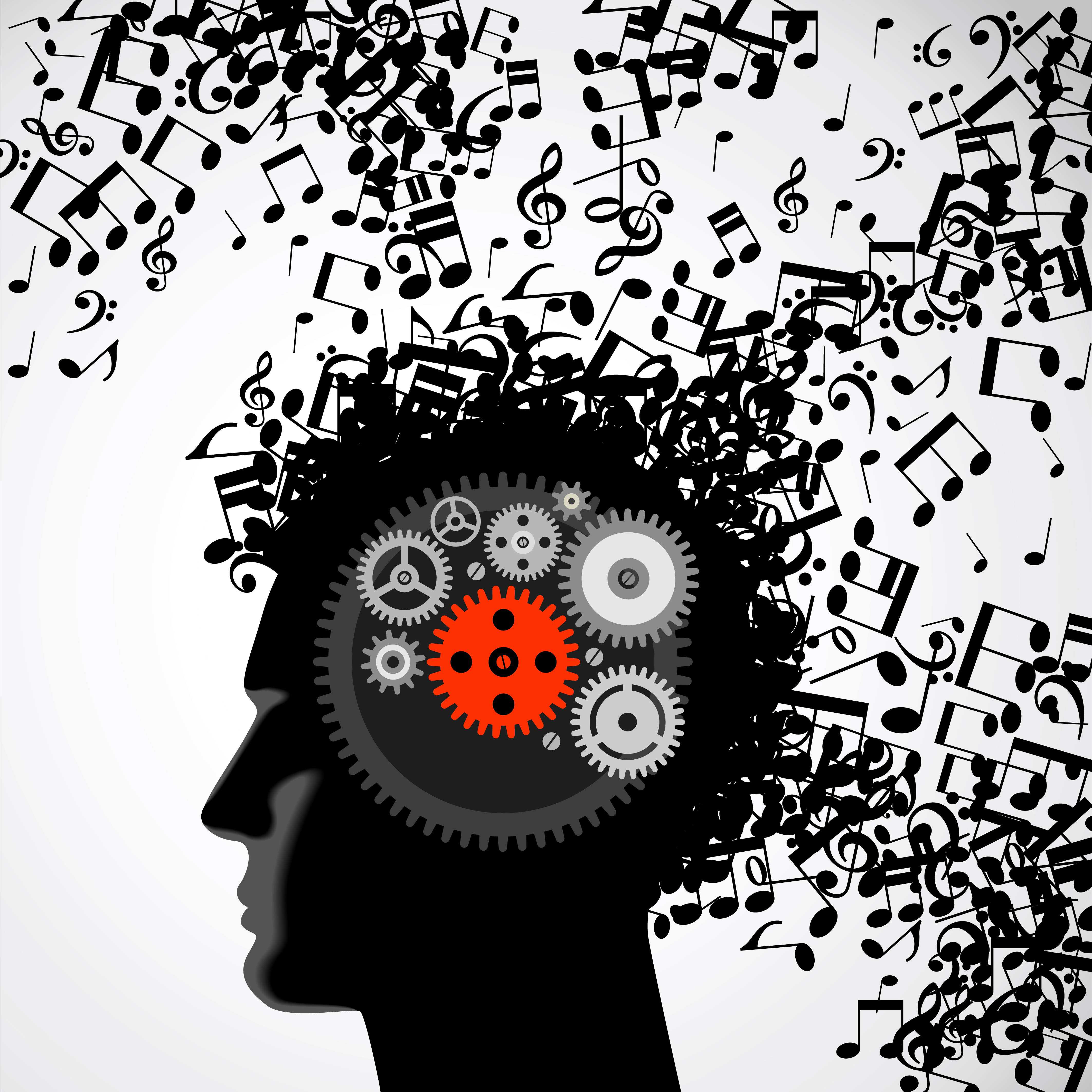
When college students listened to the music of Mozart, their IQ rose almost 10 points in 10 minutes.
Here’s what they found:
- When college students listened to a certain piece of Mozart’s music for 10 minutes their IQ increased by 8-9 points. This phenomenon was later dubbed, “The Mozart-effect.” (the piece was: Sonata in D for Two Pianos: Allegro con spirit)
- However, this increase in IQ didn’t last…but what do you expect from listening to 10 minutes of Mozart?!
- The real proof of the power of music came when the scientists included keyboard lessons (no, not computer keyboard, silly…music keyboard!) Within 8 months, the spatial IQ of preschoolers taking keyboard lessons increased by 34%. Other children in kindergarten, first and second grade taking musical keyboard lessons also showed a significant increase in spatial intelligence—up to 100%!
It’s important to understand the following:
- First, this study and subsequent studies were NOT evaluating general intelligence, but rather a specific type of intelligence—spatial intelligence or how Shaw and Rauscher put it: “spatial-temporal reasoning.”
- Second, the studies that really showed promise in increasing spatial IQ were kids taking music lessons and not just listening to Mozart.
This brings us to the next question:
What is Spatial Intelligence and Why Is It Important?
Spatial intelligence is being able to see pictures in your minds-eye. It’s the ability to perceive the visual world accurately and form mental images of objects. It’s being able to recognize, compare and find relationships among the patterns and details of an object.

People who are spatially intelligent, form vivid and detailed pictures in their minds-eye. It is the world of the artist, the surgeon, the engineer and the pilot
Spatially talented people understand three-dimensional space and can reconstruct their visual world. And they are amazing problem-solvers!
Some examples of spatially gifted people include the:
- artist
- engineer
- scientist
- surgeon
- pilot
- architect
- inventor, etc.
Children with strong spatial skills (or intelligence) enjoy chess and more advanced mathematics and have a greater understanding of science, math, and engineering.
They’re also good at:
- Working mazes
- Drawing geometric figures
- Copying patterns
- Doing puzzles
People With Strong Spatial Intelligence
Pilots, artists, architects, engineers, surgeons, and scientists are just some examples of spatially intelligent people.
While flying, many pilots have an innate visual sense of direction, a mental map of where they are, even if they are surrounded by clouds.
Artists and architects see and observe in their minds how the elements of space, line, shape, color, patterns, and balance come together to form a completed building or picture.
Engineers and scientists “see” in their minds-eye the solution to problems.
We think of Albert Einstein as a mathematical genius. To be honest, he was a spatial genius. He “saw” and visualized problems in his mind, long before they became a reality on paper and in the physical world. And whenever Einstein became “stuck,” he played his violin which helped him solve complicated and difficult science problems. Music organized his brain which enabled him to reach important conclusions regarding spatial problems like E=mcˆ2 (see my book, Good Music Brighter Children, p. 19).
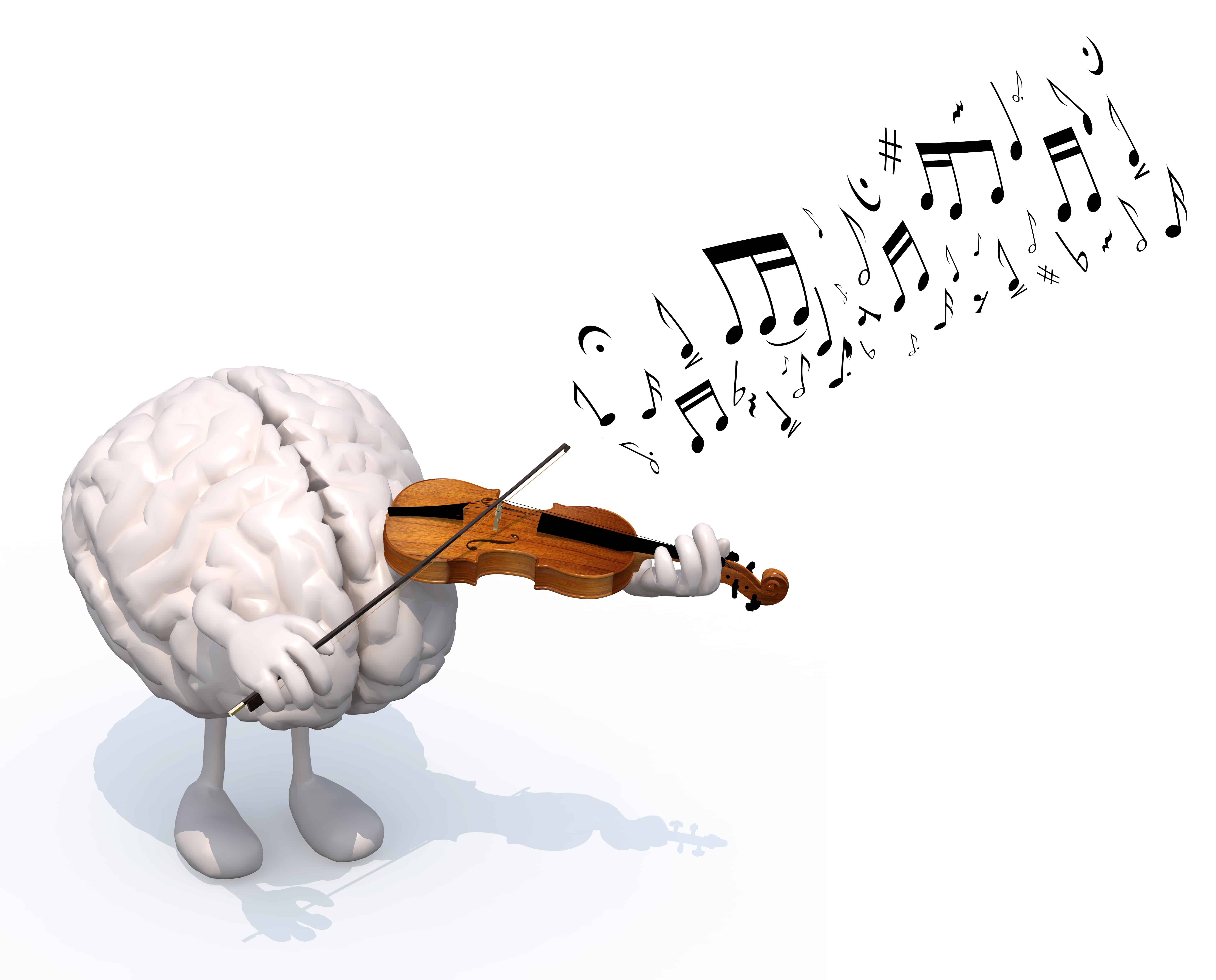
Whenever Einstein became “stuck” with a perplexing problem, he played the violin, which enabled him to organize his thoughts and find answers to problems
Dr. Ben Carson (now retired), was one of the top pediatric neurosurgeons in the world and a very spatially gifted doctor. He performed many difficult and intricate surgeries. For example, he successfully separated the Binder twins, who were conjoined at the skull. He talks about his ability to see three-dimensionally and how it has helped him understand physical relationships between objects—all parts of spatial intelligence. Dr. Carson is also a gifted musician and mathematician.
Does Mozart Make You Smarter? 4 Reasons His Music Increases Spatial Intelligence
Years ago, I visited Dr. Shaw at UCI and he explained to me exactly what they discovered with the music of Mozart and how listening to it makes you smarter.
In a nutshell, here’s what he said:
#1: The structure of Mozart’s music (and most classical music) is made up of very complex patterns.
#2: When listening to Mozart, neurons fire in the brain and create patterns
#3: When doing a spatial task such as putting a puzzle together or a cutting and folding task, neurons also fire in the brain creating similar patterns that resemble music
#4: When listening to Mozart AND doing the spatial task, it’s like double-duty on the brain and you actually INCREASE your ability to do the task AND your spatial intelligence.
You may find it easier to understand by visually seeing it. Here is a music animation from the Internet.
What you are about to hear is the exact piece of Mozart’s that Shaw and Rauscher played for the college students which increased their spatial IQ by almost 10 points. It’s the Sonata in D for Two Pianos: Allegro con spirit.
Watch how they show how the patterns in the music compliment and trigger the same patterns in the brain, thus strengthening the spatial areas of our brains… click below for the video:
But remember, spatial intelligence builds and sticks when you are learning a musical instrument. It’s great to listen to Mozart and other classical musicians, but if you want higher-level thinking skills–take music lessons.
2 Reasons Why We Need Spatially-Intelligent People in the 21st Century
Here are 2 important reasons that we need young people who think spatially and why music can help:
#1. Better Problem-solvers & Critical Thinkers
Kids who study a musical instrument tend to be better critical thinkers and problem-solvers. Our world is becoming increasingly complex and we need people who can accurately compare and contrast the similarities and differences between two or more objects and who can analyze, synthesize and evaluate information when performing their job tasks.
#2: Learning a Musical Instrument Primes the Brain for Spatial Thinking
When a child is involved with music lessons, his/her brain is primed and prepared in such a way that they understand math, science and technology better and more easily. They are able to think their way through difficult and complex issues.
Spatial intelligence is incredibly important for the 21st century. It’s this intelligence that will help us solve the perplexing questions facing our world.
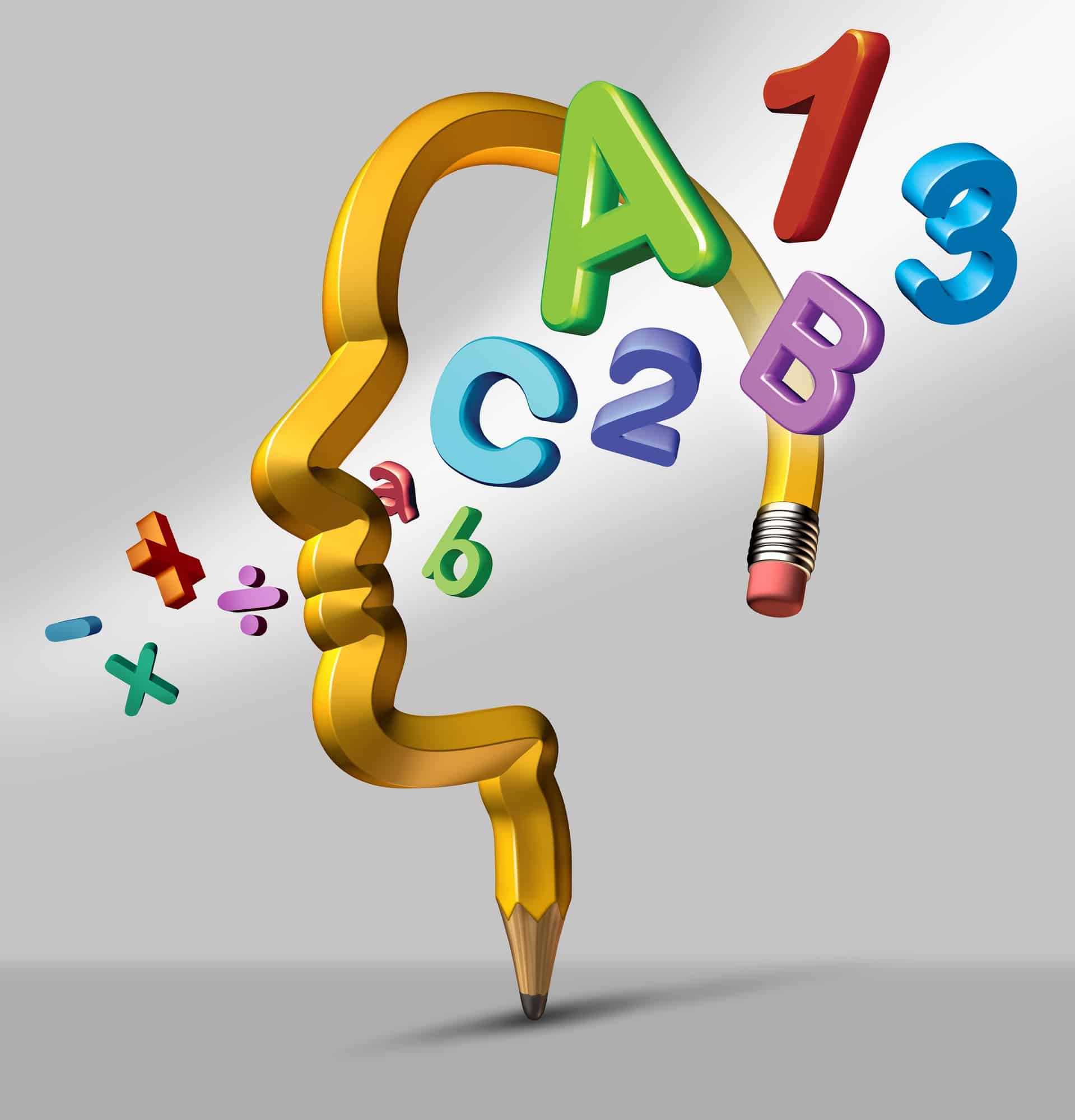
Because playing a musical instrument increases spatial intelligence, it’s important to give your kids music lessons. This type of intelligence is needed for the 21st century
Suggestions:
- Enroll your children and yourself in music lessons—TODAY!
- Play classical music for your children while they are studying, going to sleep, playing, and in the car as you are driving from one lesson to another. It WILL make both you and your children smarter.
- CD Suggestion: Purchase “Mozart for Your Mind.” It has “Sonata in D for Two Pianos: Allegro con spirit” which was the piece of music that Shaw and Rauscher used to demonstrate an increase in spatial IQ. You can use this piece of music while your kids are studying their math lessons.
- If you believe in what I’m telling you, I suggest you purchase my book, Good Music Brighter Children. It’s chocked full of stories and examples of how important music is—for building kids with values, smarts, and thinking skills.
- Join my closed Facebook group, “Raising Bright Children.” I do Facebook Live and daily posts to help you in your parenting journey. Click the link to join. And be sure and answer the three simple questions. If you join my email list, you will have access to my Resource Library which includes many different CD suggestions and books about music for children and teens.
So, if anyone asks you, “Does Mozart make you smarter?” You can answer with a resounding, “Yes!”
Music Course
In February, I will be offering a music course, “Powerhouse Classical Music that Helps Young People Study and Learn.” If you have a child who has difficulty focusing, concentrating, paying attention or memorizing schoolwork–you’ll find this course extremely helpful. It’s amazing for kids of all ages–with or without learning challenges or emotional concerns. It’s based on listening to certain pieces of classical music while engaged in homework, studying for tests, memorizing facts, figures and formulas for math and much more!
Click here to access the course
You can access the 2-minute video here.
Enjoy
Do you or your children play a musical instrument? Have you noticed that they have an easier time with math or science? Are they better thinkers and problem-solvers? More disciplined and responsible? Please comment in the section below—would love to hear your stories!
Want to remember this post? Post, “Does Mozart Make You Smarter? If so, How?” to your favorite Pinterest Board
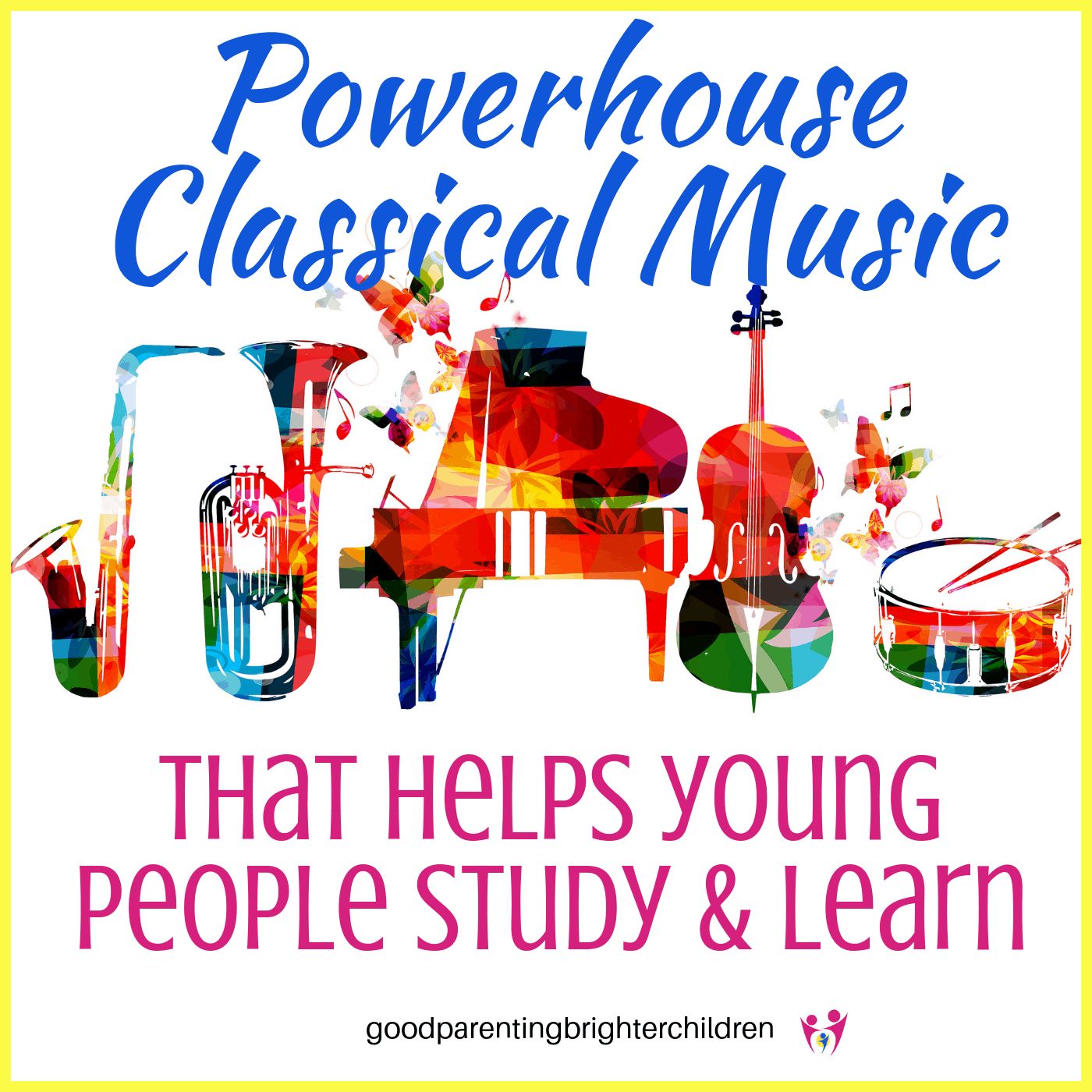
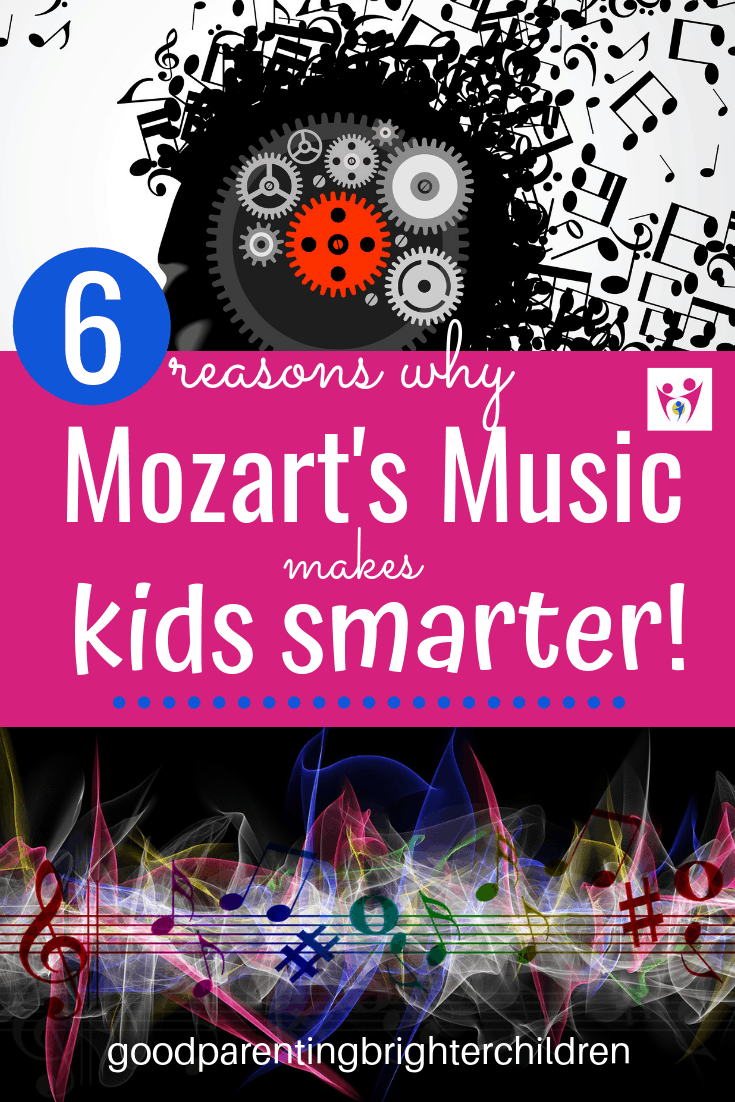
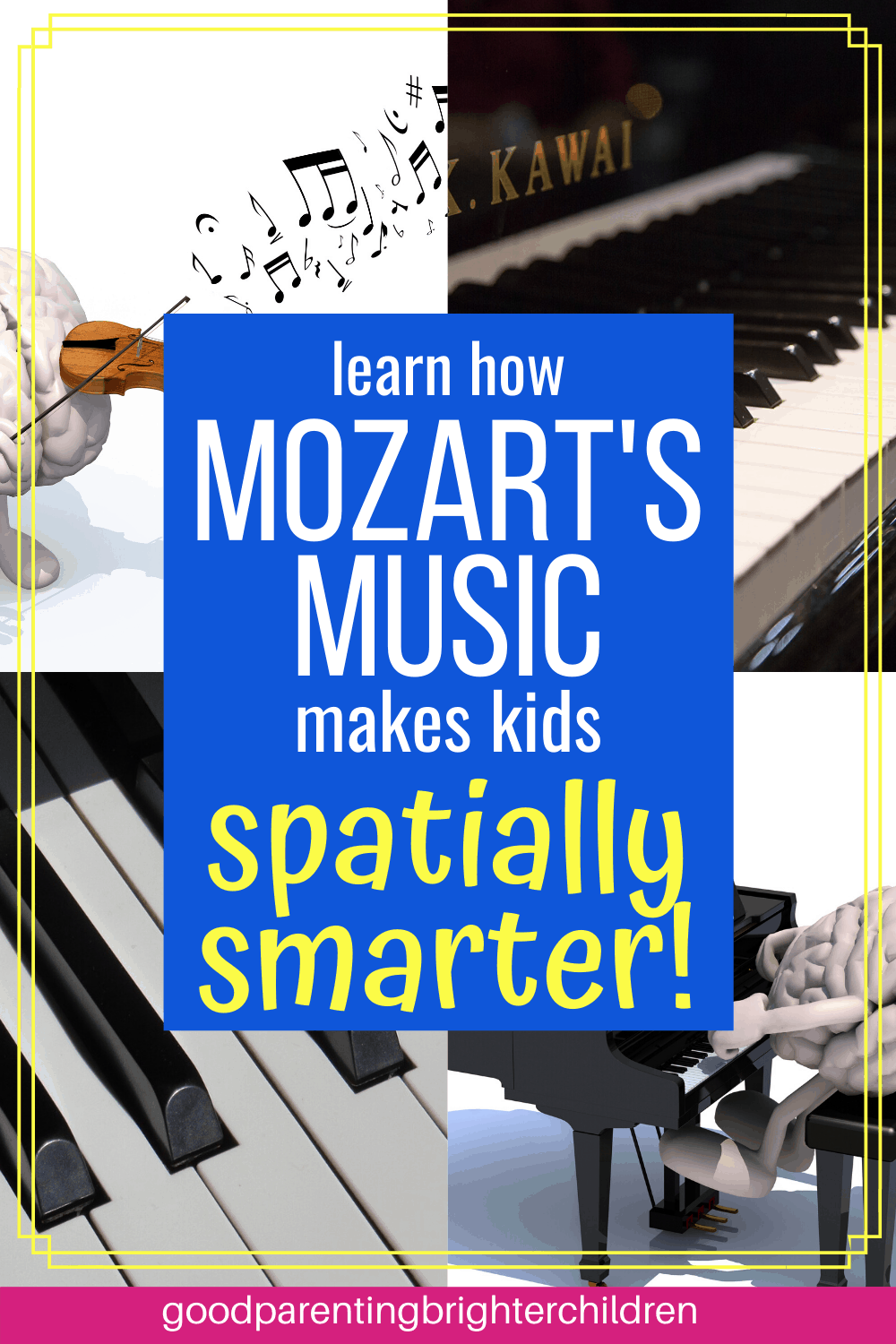


Just as an “aside”, we have found that students who actually travel to attend music (piano, drum, etc.) lessons generally see/feel/experience these assets:
1. The student/teacher relationship is located in ‘neutral territory’, where the student is not flustered or frustrated by activities going on in the
home while he/she is taking the lesson.
2. The opportunity to perform on more than one different instrument (diversity, here) can be challenging and inviting.
3. The look, sound and feel of any given instrument gives the student an opportunity to a): find one’s favorite or most comfortable; and
b): practice ahead of time for whatever ‘comes up’ during recitals; competitions, etc. is an important aspect of learning to adapt in social
environments. (In this way, comparisons can be made; surprises as to the type and quality of instruments don’t happen as often; and
personal preferences toward brighter, more harsh, or calming, or warm, romantic sounds can be established…in other words, difficulties are
being dealt with and resolved).
4. The lesson room environment is usually more structured, more ‘business-like’, etc. and the time-frame is more precise/concise. This helps
establish parameters, time limits, and so forth, while also providing one-on-one quality time with a professional instructor. And for a child
who is very shy or nervous, this can been a calming, productive time–once the parent and child both feel the child is able to cope well during
the actual lesson. By the way, if your child is not gaining a skill (and is only taking lessons for the fun of it or with several other students at
the same time), you might just be wasting his/her and your time and your income dollars…look for a teacher who actually wants to see the
child succeed, but without too much pressure exerted.
This is excellent Antoinette! Many of your comments, I must admit that I had not thought of before. Thank you for your insights–they are born of first-hand experience! What you and Bob do for so many kids in introducing them to music is amazing! Thank you!
My son Zach plays so many instruments. He started with drums at the age of six and added the trombone once he reached middle school. He now has self-taught himself to play guitar, bass guitar, ukulele, and trumpet. He’s amazing! Wonderful post!
Once again Tiffany–excellent comments! Such a smart mom to get your son involved in music lessons! And, I’m sure his interest and dedication to music have also contributed to his success in school. These instruments that he plays–are not easy–particularly the string instruments. They will actually increase certain areas of the brain that other instruments do not. Thank you for sharing!
Congratulations on your very exciting field of endeavor! It is amazing to see how far the topic of Good Parenting Brighter Children can reach! Your foresight is amazing….our whole family will benefit from this vast amount of research, knowledge and one-on-one family interplay by which you are providing guidance and experiential successes. Thank you for providing a way to pass along this treasure trove to my children, their children, and the great-grandchildren, too. For this information and your ‘labor of love’, I thank you, kindly!
Thank you Antoinette! I so appreciate all your support and musical influence. You and Bob have influenced thousands by bringing music to the masses!
Really liked this post!